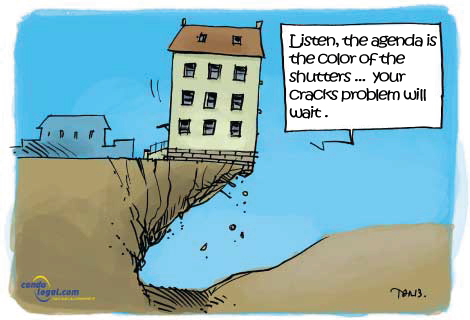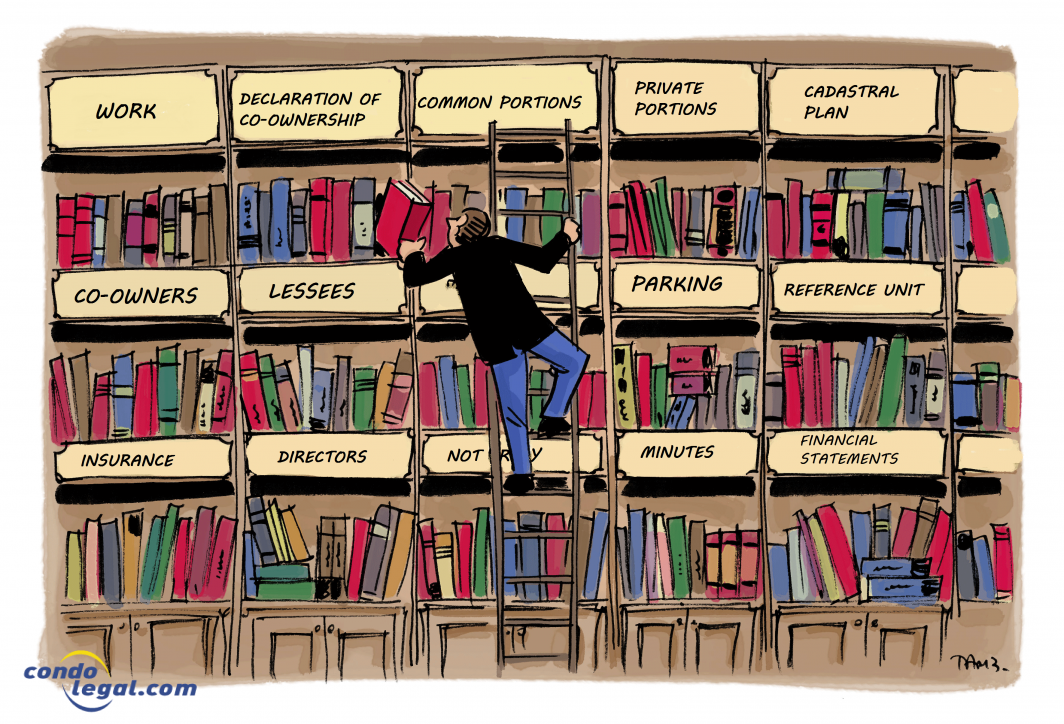Natural person who occupies a private portion, in this case an apartment, without being one of the co-owners of the immovable or a tenant. Anyone who is a member of a co-owner’s household, such as a spouse or the parents of a co-owner, is considered an occupant. The same applies to a person who occupies a private portion under the terms of a loan for use,or in his capacity as usufructuary. The rights of the occupant are limited to those available to the co-owner.

01/07/2024
When the leased property is an apartment, the lessee must respect the by-laws of the immovable. However more often than not, tourists renting a condo for a short period of time have not received a copy thereof and may not even realize they are contravening its provisions.They sometimes unduly use…...

01/07/2024
The Internet spawned a collaborative economy. Web sites such as Airbnb allow co-owners to rent their apartments to third parties a few days a year. This accommodation formula, intended for travelers, sometimes generates substantial income. For this reason, some owners are tempted by these easy pickings. And they believe they…...

30/06/2024
The declaration of co-ownership is a contract that orchestrates and regulates the lives of co-owners, lessees and other occupants of the immovable. It represents the guideline for everyone who lives in the immovable.The declaration of co-ownership provides, systematically, that it is up to the board of directors to have its…...

28/06/2024
Over time, various maintenance or improvement works will become necessary, sometimes requiring the syndicate to access private portions, or even to carry out the work within them. To prevent any obstruction of essential work for the syndicate of co-owners, Article 1066 of the Civil Code of Québec states that no co-owner…...

16/06/2024
Like any other natural or legal person, a syndicate of co-owners is susceptible to incur civil liability. This may be called into question during the execution of work in the common portions, as soon as a resident of the building or any other person in its environment experiences damage, direct…...

16/06/2024
The syndicate's right of access to a private portion must be exercised in a reasonable manner. Work to be undertaken by the latter, even when justified, requires that the occupants of the apartment be notified before the work starts. Thus, it will be necessary to warn them in advance so that they…...

16/06/2024
The directors of a co-ownershipmay, eventually, be required to enter a co-owner’s private portion. Article 1066 of the Civil Code of Québec obliges the co-owner, as well as their tenant or any other occupant, to accept work within their private portion. This applies particularly to urgent or conservation work aimed at ensuring…...

16/05/2024
A co-owner may be liable to the syndicate, the other co-owners and the occupants of the immovable. As stated in Article 1457 of the Civil Code of Québec, every person has a duty not to harm others. As a co-owner, you must be careful and abide to the appropriate rules of…...

02/04/2024
Optimal management of a co-ownership (condominium) is rooted in the meticulous keeping of a register and so, in accordance with section 342 of the Civil Code of Québec; this register, partially accessible to co-owners, contains vital information for the proper functioning of the co-ownership such as the contact details of the co-owners as well…...
.jpg)
09/08/2022
A co-owner has repeatedly caused several water damages in our building, due to his negligence. This resulted in a surcharge for the syndicate's insurance. Question: Can the board of directors claim the full amount from the co-owner who caused the loss?...

14/01/2017
The declaration of co-ownership defines the terms and conditions of living together. It applies to the co-owners and, in principle, to the occupants and tenants s of the building. It is up to the Board of Directors, as soon as it becomes aware of it, to ensure that its content is…...
